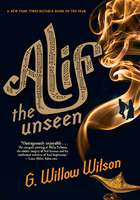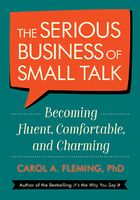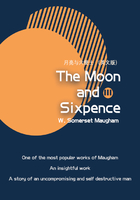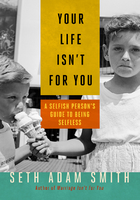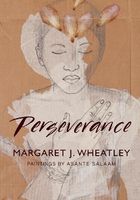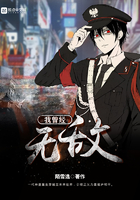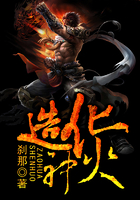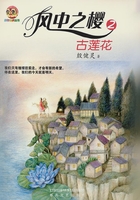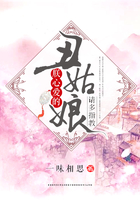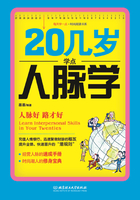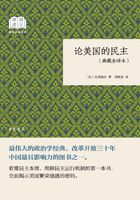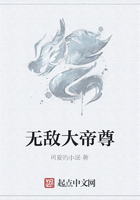The Democratic Front
AFTER the Meetings for Freedom, in August and September 1987, I left for Europe, on October 2, as I was in the habit of doing every year during this period. But unlike other years, this time I took along, deep within me, despite Patricia's outbursts and her apocalyptic prophecies, the disease of politics. Before leaving Lima, in a televised program thanking those who had supported me in the mobilizations against nationalization, I said that I was returning "to my study and my books," but nobody believed me, beginning with my wife. I didn't believe it either.
In the two months that I was in Europe, as I was attending the premiere of my work La chunga, in a theater in Madrid, or was scribbling the drafts of my novel Elogio de la madrastra (In Praise of the Stepmother) under the skylighted cupola of the Reading Room of the British Museum (just a step away from the little cubicle in which Marx had written a good part of Dos Kapital) my mind often wandered from the fantasies of La chunga's male characters or from the erotic rites of Don Rigoberto and Do?a Lucrecia to what was happening in Peru.
My friends—the old ones and the new ones, from the days of the mobilization—met periodically in my absence to make plans and to hold discussions with the party leaders. Every Sunday Miguel Cruchaga wrote me detailed and euphoric reports which, invariably, sent my wife into a rage or off to get a Valium. From the very first public opinion polls I appeared as a popular figure, with nearly a third of the electorate declaring their intention to vote for me in case I became a candidate—the highest percentage among the presumed candidates for the presidency in the 1990 election, still a long way away. But what made Miguel happiest was the fact that the pressure of public opinion in favor of a great democratic alliance, under my leadership, seemed irresistible to him. It was a subject that Miguel and I had toyed with, in our conversations concerning Peru, as a remote ideal. All of a sudden, it had become a real possibility, one that depended on my decision.
It was true. Ever since the rally in the Plaza San Martín, and because of its great success, in the newspapers, on the radio, on television, and all over Peru people began to speak of the need for an alliance of the democratic forces of opposition to confront the APRA and the United Left in the 1990 elections. As a matter of fact, the militants of Popular Action and the Christian Popular Party had become one with the independents in the main square that night. And in Piura and Arequipa as well. During all three demonstrations I brought those parties and their leaders to applaud because of their opposition to the government's nationalization plan.
This opposition had been immediate in the case of the Christian Popular Party and somewhat lukewarm at first in that of Popular Action. Its leader, ex-President Belaunde, present in Congress on the day of the announcement, made a cautious statement, fearing perhaps that nationalization would have strong backing. But over the next few days, in accord with the reaction of broad sectors of the populace, his pronouncements became increasingly more critical and his supporters had assembled en masse in the Plaza San Martín.
In the weeks that followed the Meetings for Freedom, the pressure from the non-Aprista news media and from the public in general, urging in letters, phone calls, and statements for the press that our mobilization solidify into an alliance with an eye to 1990, was enormous, and it continued while I was in Europe. Miguel Cruchaga and my friends agreed that I should take the initiative to make that plan a reality, although they disagreed as to the timing. Freddy thought it premature for me to return to Lima immediately. He feared that, in the three years ahead before the change of presidencies, my bright new public image would fade. But if I were going to be active in politics it was indispensable to travel a great deal in the interior of the country, where people scarcely knew who I was. So, after shuffling any number of formulas, in discussions by telephone that cost us an arm and a leg, we decided that I would return to Peru at the beginning of December, by way of Iquitos.
The choice of the capital of the Peruvian region of Amazonia as the gateway for my return to Peru was not by chance. During the fight against nationalization, at the time of the rallies in Lima, Arequipa, and Piura, we had arranged for a fourth one in Loreto, from which I had received requests to hold one. The APRA and the government then unleashed against me, in Iquitos, an extraordinary campaign, and, strictly speaking, a literary one. It consisted of denouncing me on radio stations and on the state television channel as a maligner of the women of Loreto, because of my novel Pantaleón y las visitadoras (Captain Pantoja and the Special Service), set in Iquitos, from which they reproduced whole paragraphs and pages that were distributed in leaflet form or were read aloud on the radio and TV, so that the aim of the novel appeared to be to call all the women of Loreto "visitors of the evening" and to describe their ardent sexual exploits. There was a parade of mothers dressed in mourning and the APRA called upon all the pregnant women in the city to lie down on the landing strip so as to prevent a landing of the plane in which I, "the pornographic slanderer who is endeavoring to sully the soil of Loreto" (I am quoting one of the tracts), would arrive. To cap the climax, it so happened that on the one opposition radio station in Loreto, the likable reporter who defended me (in language that resembled that of Sinchi, a character in my novel) believed that the best way to do so was by making an impassioned apologia in favor of prostitution, to which he devoted several programs. All this made us fear a fiasco or, perhaps, a grotesque witches' Sabbath, and we gave up our plans for that rally.
But now that I was returning to Peru with far-reaching political intentions, it was best to confront the bull of Loreto from the very start and know what to expect. Miguel Cruchaga and Freddy Cooper went to the jungle to prepare for my arrival. I came by plane alone, via Miami, since Patricia, as a sign of protest against these first signs of proselytism, refused to come with me. A small but cordial crowd welcomed me at the Iquitos airport, and on the following day, December 13, in the auditorium of the Colegio San Agustín, filled to capacity, I spoke of my relationship to Amazonia and of how much my novels, in particular Pantaleón y las visitadoras, owed to that region. The women of Loreto, who constituted the great majority of my listeners, gave proof of better humor than my adversaries, laughing at my anecdotes concerning that fictitious work (and, two and a half years later, voting overwhelmingly for me in the general elections, since it was in Loreto that I won the most impressive plurality in the country).
The stop-off in Loreto took place without incident, in a warm and friendly atmosphere, and the only unforeseen event was Freddy Cooper's fit of rage, on getting up at midnight in the Hotel de Turistas where we spent the night and discovering that the bodyguards responsible for our safety had all gone off to the brothel.
As soon as I arrived in Lima, on the 14th of December, I set to work creating that Frente Democrático (Democratic Front)[1] which the reporters rebaptized with the dreadful contraction Fredemo (which Belaunde and I always refused to use).
I went to visit, separately, the leaders of Popular Action and the Christian Popular Party, and both Fernando Belaunde and Luis Bedoya Reyes proved favorable to the idea of the Front. We held many meetings, full of circumlocutions and veiled tensions, in order to clear away the obstacles conspiring against the alliance. Bedoya was much more enthusiastic about the idea than Belaunde, for the latter had to confront the stubborn opposition of many of his friends and fellow party members, bent on his being, once again, the candidate for president and insistent that Popular Action alone should present the opposition candidate. With his superb tact, Belaunde evaded and discouraged these pressures, little by little, but it was a joyless exercise, for he doubtless feared that, with the realization that their leader was about to enter winter quarters—at the time he was, after all, in his middle seventies—his party, so closely linked to him personally, would fall to pieces.
Finally, after many months of negotiations in which, very often, I felt asphyxiated by his byzantine maneuvers, we agreed to set up a tripartite commission charged with the task of setting up the bases of the alliance. Three delegates represented AP on it, three the PPC, and three others the "independents," whose representatives acknowledged me as their leader and for whom we chose a name that stood for something that as yet did not exist: the Movimiento Libertad (Freedom Movement). The three delegates whom I designated to represent the Freedom Movement—Miguel Cruchaga, Luis Bustamante, and Miguel Vega Alvear—would later constitute, with Freddy Cooper and me, the first executive committee of that movement, Libertad, that we were beginning to create, at top speed, in those final days of 1987 and the beginning ones of 1988, at the same time that we were organizing the Democratic Front.
I have been endlessly criticized for this alliance with two traditional parties that had already been in power (for a good part of Belaunde Terry's two terms as president, Bedoya Reyes had been his ally). This alliance, critics maintain, took away the freshness and the newness of my candidacy and made it appear to be a machination of the old bosses of the Peruvian right—who had lost prestige after the negative balance sheet of Belaunde's second term as president—with the aim of returning to power through a third person. "How could the Peruvian people believe in the 'great change' that you offered," they've asked me, "if you went along arm in arm with those who governed the country between 1980 and 1985 without changing a single thing that was going badly in Peru? When you joined up with Belaunde and Bedoya, you committed suicide."
I was aware from the beginning of the risks that such an alliance meant, but I decided to run them for two reasons. The first: because so many reforms were needed in Peru that, in order to see them through, a broad popular base was required. AP and the PPC had influence in significant sectors and both parties had impeccable democratic credentials in their favor. If we present ourselves to the voters as separate parties, at the polls, I told myself, the splitting of the votes for the center and the right will make either the United Left or APRA the winner. The negative image of "old pols" can be effaced with a plan for deep-seated reforms that would not have anything to do with the populism of AP or the conservatism of the PPC, but would be associated, rather, with a radical liberalism never before put forward in Peru. These are the ideas that will give freshness and newness to the Front.
Moreover, I was afraid that three years would not be enough, in a country with the complicated problems of Peru—vast zones affected by terrorism, roads in terrible condition or nonexistent, an almost total lack of means of communication—for a new organization of inexperienced people such as Libertad to set up branches in all the provinces and districts in order to compete with the APRA, which in addition to its good organization could also count this time on all the apparatus of the state as part of its electoral machine, and to put up a fight against a left that had been battle-hardened in a number of electoral contests. However discredited they might be, I calculated, AP and the PPC can count on a national infrastructure, indispensable for winning the election.
Both calculations were quite wrong. It is true that my friends and I, fighting with the allies at times like cats and dogs, with Popular Action especially, were able to see to it that the Front's program for governing was reformist and radical. But when election day came, this carried less weight in the popular sectors than the presence among us of names and faces that had lost all credibility in view of their past political activities. And, what was more, it was ingenuous on my part to believe that Peruvians would vote for ideas. They voted the way people do in an underdeveloped democracy, and sometimes in the mature ones as well—on the basis of images, myths, heart throbs, or on account of obscure feelings and resentments with no particular connection to processes of reason.
The other supposition was even more erroneous. Neither Popular Action nor the Christian Popular Party had a solid national organization. The latter had never had one. A small party, largely middle-class, about all it could count on outside of Lima was a few committees in the capital cities of departamentos and provinces and very few followers. And Popular Action, despite having won two presidential elections and having been in its best periods a mass party, never reached the point of having the disciplined, efficient organization that the APRA had. It was always an alluvial party that sedimented around its leader during elections and then scattered. But following its reverse in 1985—its presidential candidate, Dr. Javier Alva Orlandini, obtained just over 6 percent of the vote—it had lost its impetus and begun to fall apart. Its committees, where such existed, were made up of former bureaucrats, held in bad repute sometimes because of abuses or poor management in their assigned jobs, many of whom appeared to want the Front to win so that they could go back to their old ways.
In the end, the results were precisely the opposite of what I had foreseen. The infrastructures of the allies never amalgamated during the campaign and, on the contrary, in many places in the interior the two parties devoted their energies to fighting each other, because of personal rivalries and petty greed, and sometimes, as in Piura, exchanging savage press releases via the radio and the newspapers that couldn't have pleased their adversaries more. Despite our deficiencies as far as organization was concerned, and they were serious ones, Libertad may well have been, among the forces of the Front—in addition to AP and the PPC, it was joined by SODE (Solidaridad y Democracia: Solidarity and Democracy), a small group of executives and professionals—the one that managed to set up the most widespread network of committees in the country (though not for long).
The alliance with AP and the PPC was not the principal reason for my defeat in the elections. A number of factors brought it about, and doubtless a great deal of the responsibility for my failure was my own, for having focused the entire campaign on the defense of a program for government, for disregarding the exclusively political aspects of the situation, for giving signs of intransigence and maintaining, from beginning to end, an openness in my proposals that made me vulnerable to the attacks and the maneuvers to discredit me and that frightened off many of my initial supporters. But the alliance thanks to which the AP and the PPC had governed the country between 1980 and 1985 contributed to the fact that popular confidence in the Front—which lasted throughout nearly the entire campaign—was precarious and, at a certain juncture, vanished altogether.
All through this period of close to three years I met with Belaunde and Bedoya at intervals of two or three times a month, alternating in the beginning the places where we met so as to dodge the pack of reporters, and then later on at my house for the most part. Our meetings took place in the morning, around ten o'clock. Bedoya invariably arrived late, which irritated Belaunde, a most punctual man and always eager for the meetings to end promptly so that he could be off to the Club Regatas to swim and play badminton (he sometimes came with his slippers and racquet).
It is hard to imagine two people—two politicians—so completely different. Belaunde had been born in an aristocratic family, though not a wealthy one, and had reached the winter of his life heaped with honors: two presidential victories and an image as an upright, democratic statesman that not even his bitterest adversaries denied him. Bedoya, who was somewhat younger, born in Callao in 1919, and whose origins were much humbler—he came from a lower-middle-class family—had had a long way to go in order to carve out a career for himself, as an attorney. His political career had had a brief apogee—he had been a magnificent mayor of the capital, from 1964 to 1966, during Belaunde's first term, and had been reelected from 1967 to 1969, but after that nothing had enabled him to shake off the labels of "reactionary," "defender of the oligarchy," and "man of the extreme right" that the left: had pinned on him, and he was defeated both times he ran for president (in 1980 and 1985). Those labels, along with his not being a very good speaker and sometimes acting too hastily, contributed to the fact that Peruvians were never going to allow him to head the government of the country. It was an error for which we paid dearly, especially in the 1985 election, for his administration would surely have been less populist than Alan García's, been more aggressive against terrorism and, without the slightest doubt, more honest.
Of the two of them, the one who was eloquent and brilliant, elegant and charming, was Belaunde. Bedoya, on the other hand, could be far off the mark and long-winded, with his long courtroom-style soliloquies that infuriated Belaunde, a man constitutionally allergic to anything abstract and totally uninterested in ideologies and doctrines. (The ideology of Popular Action consisted of an elementary form of populism—a great many public works projects—inspired by Roosevelt's New Deal, that president being the model of a statesman for Belaunde; of nationalistic slogans like "the conquest of Peru by Peruvians"; and of romantic allusions to the empire of the Incas and the cooperative and communal work of the pre-Hispanic people of the Andes.) But of the two, Bedoya proved to be more flexible and ready to make concessions for the sake of the alliance, and the one who, once we had arrived at an agreement, fulfilled it to the letter. Belaunde always acted—keeping up, I readily grant, the proper formalities at all times—as if the Democratic Front were Popular Action, and the Christian Popular Party and Libertad two mere bit players. Beneath his most elegant manners there was a certain vanity about him, not a little stubbornness, and a touch of the caudillo—the political boss accustomed to doing and undoing whatever he pleased in his party without anybody ever daring to contradict him. Very courageous, a public speaker with a splendid nineteenth-century rhetorical style, a man of melodramatic gestures—fighting a duel, for instance—he had been one of the moving forces of the Democratic Front in 1945, which won José Luis Bustamante y Rivero the presidency, and he had suddenly attracted attention in the last years of General Odría's dictatorship (1948–56) as a reformist leader, determined to make social changes and modernize Peru. His winning of the presidency in 1963 stirred up enormous hope. But his administration did not accomplish very much, in large part because of the APRA and the faction supporting Odría (which, acting as allies in Congress, where they had a majority, blocked all of Belaunde's projects, beginning with agrarian reform) and in part because of his indecision and his bad choices of collaborators. Velasco's military coup sent him into exile in Argentina, from which he went to the United States, where he lived all during the days of the dictatorship, very modestly, teaching. In his second term, unlike the first, he was not overthrown by the military, but that was perhaps his one merit: surviving until the next election. For in every other respect—and above all in his economic policy—he was a failure. During his first two years he entrusted the premiership and the portfolio of minister of finance to Manuel Ulloa, an intelligent and likable man, extremely loyal to him but frivolous to the point of irresponsibility. He did not rectify any of the catastrophic measures taken by the dictatorship, such as the socialization of land and the nationalization of the most important companies in the country. He dangerously increased the national debt, failed to confront terrorism resolutely when it was still in its germinating stage, was unable to control the corruption that contaminated people in his own administration, and allowed inflation to rage unchecked.
I had voted for Belaunde every time he was a candidate, and even though I was aware of his shortcomings, I defended his second term as president, since it seemed to me that after twelve years of dictatorship, the reconstruction of democracy was the first priority and could best be attained if Popular Action remained in power. And also because those who attacked it—the APRA and the United Left—represented even worse choices. And, above all else, because there is, in the person of Belaunde, in addition to his wide reading of good books and his good manners, a profound decency, along with two qualities that I have always admired in him, inasmuch as they are not often found in Peruvian politicians: a genuine belief in democracy[2] and absolute honesty. He is one of the few presidents in our history who left the Presidential Palace poorer than when he entered it. But mine was qualified support, not exempt at times from criticism of his administration, of which, moreover, I was never a part. With just one exception, I refused all the posts he offered me: the embassies in London and in Washington, the Ministry of Education and that of Foreign Relations and, finally, the office of prime minister. The exception was the unremunerated, month-long appointment, the memory of which gave Patricia and me nightmares, as one of the members of the commission investigating the killing of eight journalists in a remote region of the Andes, Uchuraccay,[3] for which I had been mercilessly attacked and for which I was about to be taken to court.
In the middle of Belaunde's second term, I was unexpectedly summoned one night to the Presidential Palace. He is a reserved man who, even when he talks a great deal, never reveals his most intimate thoughts. But on that occasion—we had two or three meetings on the same subject in the next few months—he spoke to me in a much more explicit way than usual, with some emotion, and allowed me to catch a glimpse of certain matters that were tormenting him. He was deeply distressed at those experts to whom he had given carte blanche to manage the country's economy. And what had been the result? He was certain that history would not remember them, but he for his part would not be forgotten. He was indignant that certain ministers had hired advisers whose salaries were paid in dollars when the entire country had been asked to make sacrifices. And there was melancholy and a sort of bitterness in his tone of voice and in his silences. His immediate preoccupation was the 1985 election. Popular Action wouldn't stand a chance of winning, nor would the Christian Popular Party, since Bedoya, without detracting from his personal merits, lacked drawing power at the polls. This could mean the triumph of the APRA, with Alan Garcia in the presidency. The consequences for the country would be frightful. In the years that followed, I would always remember, because of the confirmation that time brought, the prophecyBelaunde made that night: "Peru has no idea what that young man may be capable of if he comes to power." His idea was that this could be avoided if I were the candidate of AP and the PPC. He thought that my candidacy would attract the independent vote. He answered my arguments that I was no good at politics (a prophecy that time would also confirm) with flattering phrases and with a kindliness—I would use the term affection, if this word were not so at odds with his sober, not at all emotional personality—that he never failed to show me even in the tensest moments of the life of the Democratic Front (as at the time of my resignation, in mid-1989, because of the dispute over municipal elections). That project of Belaunde's never went any farther, in large part because of my own lack of interest, but also because it found no echo either in AP or in the PPC, which wanted to present their own candidates in the 1985 election.
Bedoya, a witty man and with some ironic gibe or other always on the tip of his tongue, said that Belaunde was "a master at taking the syringe out of his backside." And in fact there was no way of pinning down anything with Belaunde or even discussing it when a subject wasn't to his liking or didn't seem worthwhile to him. In such cases he always managed to take off on another tangent, telling anecdotes about his travels—he had been all over Peru, from top to bottom, on foot, on horseback, in a canoe, and had an encyclopedic knowledge of the country's geography—or about his two terms in office, without leaving anyone room to get a word in edgewise to interrupt him. And then, suddenly, he would look at his watch, get to his feet, and without further ado—"Well, just look how late it's gotten"—bid us goodbye and disappear. One night I also saw him inflict these same clever evasive maneuvers that he used with Bedoya and me on three Aprista leaders high up in the administration hierarchy—the prime minister, Armando Villaneuva, the president of the Congress, Alva Castro, and the senator and historical relic of the party, Luis Alberto Sánchez—who had asked to talk with the leaders of the Democratic Front in view of a possible political truce. We met at the home of Jorge Grieve, in San Isidro, on September 12, 1988. But the Apristas didn't even have the chance to propose such a thing to us, because Belaunde kept them silent all evening long, relating details of his first term in office, reminiscing about his travels and about well-known figures long since dead, cracking jokes and telling anecdotes, until in discouragement and, I suppose, driven half out of their minds, the Apristas gave up and left.
What we practically never talked about with Belaunde and with Bedoya, throughout those three years, was what the policy of the Front would be for running the country—its ideas, reforms, initiatives to dig Peru out of its ruins and put it back on the road to recovery. The reason was simple: the three of us knew that the parties had very different points of view on what the plan for governing the country ought to be and we preferred to leave the discussion for a later time that never came round. We would talk about the political gossip of the moment, about what Alan García's next machination would be—what ambush, intrigue, or infamy he was cooking up this time—and we would discuss, whenever we could manage to keep Belaunde from wandering off the subject, the question of whether the Front would present joint candidates in the municipal elections in November 1989 or whether each party would go its own way with its own candidates.
Now that I had become involved, I made a depressing discovery in these tripartite meetings: that real politics, not the kind that one reads and writes about, thinks about and imagines (the only sort I was acquainted with), but politics as lived and practiced day by day, has little to do with ideas, values, and imagination, with ideological visions—the ideal society we would like to create—and, to put it bluntly, little to do with generosity, solidarity, and idealism. It consists almost exclusively of maneuvers, intrigues, plots, paranoias, betrayals, a great deal of calculation, no little cynicism, and every variety of con game. Because what really gets the professional politician, whether of the center, the left, or the right, moving, what excites him and keeps him going is power, attaining it, remaining in it, or returning to it as soon as possible. There are exceptions, of course, but they are just that: exceptions. Many politicians begin their careers impelled by altruistic sentiments—changing society, attaining justice, fostering development, bringing morality into public life. But along the way, in the petty, pedestrian practice of day-to-day politics, these fine objectives become, little by little, mere clichés of the speeches and statements of the public persona that they acquire, which in the end makes them all but indistinguishable from each other. What prevails in politicians, finally, is the gross and sometimes immeasurable appetite for power. Anyone who is not capable of feeling this obsessive, almost physical attraction to power finds it nearly impossible to be a successful politician.
That was my case. Power had always aroused my mistrust, even in my early years as a revolutionary, and one of the functions of my vocation, literature, that had always seemed to me to be most important was to be, precisely, a form of resistance to power, an activity thanks to which power—all powers—might be permanently questioned, since good literature always ends up showing those who read it the shortcomings of life, the inevitable limitation of all power to fulfill human aspirations and desires. It was this distrust of power, along with my biological allergy to any form of dictatorship, that had so attracted me, from the 1970s on, to liberal thought, that of an Aron, a Popper, or a Hayek, of Friedman or of Nozick, with its commitment to defending the individual against the state, to decentralizing power by pulverizing it into multiple private powers that counterbalance each other, and to transferring economic, social, and institutional responsibilities to the citizenry as a whole instead of concentrating them in the political elite that rules the country.
After nearly a year of negotiations we finally agreed on the official constitution of the Democratic Front. I was entrusted with drawing up the declaration of principles, and Belaunde, invariably shrewd when it came to gestures, suggested that we go sign it, in a public ceremony, in the cradle and bastion of Aprismo: Trujillo. We did so on October 29, 1988, after each of us led rallies separately throughout all of the North (I went to Chiclayo). The demonstration was a success, inasmuch as it covered nearly three-quarters of Trujillo's immense and orderly main square. But in the Declaration of Trujillo, an academic proceeding that took place prior to the rally, in which the delegates of AP, the PPC, and Libertad offered a diagnosis of the situation in Peru, the hidden quarrels and rivalries within the Front began to come to the surface. In what seemed like an ill omen at the very outset, minutes before the ceremony was to start in the main hall of the Santo Domingo de Guzmán cooperative, a heavy metal room divider fell down on top of the table that Belaunde, Bedoya and I were to occupy. Belaunde and I, who had already arrived, were still standing waiting for Bedoya, who was riding in a motorcade through the streets of Trujillo. "You see," I said jokingly to the former president, "the Toucan's lack of punctuality has its positive side: he's saved our necks." But this first public act of the allies proved to be far from a cheerful occasion. Contrary to what had been agreed on—everyone crying out the same slogans at the same time so as to demonstrate the fraternal spirit of the alliance—when the three of us appeared together in public, each of the three contingents hailed only its own leader and shouted only its own rallying cries in chorus, so as to show that it was the largest one. And once the joint meeting was over, the three forces separated so that each of them could hold its own meeting that night for its local supporters. (Since Libertad did not have its own headquarters yet, we held our festivities in the street.)
The order of speakers proved to be a bone of contention. Bedoya and my friends in Libertad insisted that as the leader and future candidate of the Front I ought to close the ceremony. Belaunde objected, on the grounds of his age and his status as the former president of Peru; I would be the principal speaker only after my candidacy had been publicly announced. In the end, we did as he wished. I spoke first, then Bedoya, and Belaunde ended the meeting. Idiocies of this sort took up a great deal of our time, giving rise to suspicions, and everyone agreed that they were important.
The Democratic Front never came to be a coherent and integrated force, in which the common objective prevailed over the interests of the parties that constituted it. Only when it became clear that there would be a second round of voting, after the tremendous surprise of the first round—the very high percentage attained by Alberto Fujimori, an unknown, and the certainty that in the final round the vote of Apristas and leftists would go to him—did the shock that we had had bring militants and leaders together and induce them to cooperate without the partisan pettiness that had predominated until April 8, 1990.
This shortsighted view of politics became particularly evident where the municipal elections were concerned. Scheduled to be held on November 12, 1989, barely five months before the presidential election, they were going to be the dress rehearsals for the contest for the presidency, since they would serve as a measure of the relative strength of the contending forces. Before we had even discussed the subject, Belaunde announced that AP would put up its own candidates, since, in his view, the Democratic Front existed only for the presidential election.
For months it was hard to discuss the subject with him. Bedoya agreed with me that if each of the three political forces went its separate way in the municipal elections it would create an image of division and antagonism that would drastically reduce our chances of taking root as an alliance. When we were by ourselves, Belaunde told me that the populist rank and file of his party wouldn't stand for the idea of sharing the lists of municipal candidates with the PPC, which did not exist outside of Lima, and that he could not risk being the target of rebellion within his own party for that reason.
Since the whole problem appeared to be one of a bid for the most power, I proposed to the Freedom Movement that it give up the idea of putting up a single candidate for mayor or city councilor anywhere in Peru, so that AP and the PPC could share the candidacies between them. I thought that this gesture would make it easier for us allies to come to an agreement. But not even then would Belaunde let his arm be twisted. The matter finally attracted the attention of the communications media, and members of AP and the PPC, for the most part, but members of Libertad and supporters of SODE as well, got involved in a stupid debate that the media in thrall to the government and those on the left did their utmost to magnify in order to show the weakness and the groundswell of opposition that according to them was eating away at our alliance.
Finally, in mid-June of 1989, after innumerable and on occasion violent arguments, Belaunde gave in and accepted the idea of single candidacies. There then began another fight between AP and the PPC, this time over which of the two parties would put up the candidate for a given municipality. They never reached an agreement, and in addition, the provincial bases of each party contested the decisions of their national leaders, since all of them wanted nothing less than everything and neither party seemed prepared to make the slightest concession to its ally. The rank and file of Libertad too had cried to high heaven over our agreement not to put up any candidates, and there were a number of defections.
Alarmed by what this presaged for the future if the Front was elected, I managed to get Libertad to authorize me to offer the PPC and AP each 40 percent of the lists of candidates for Congress, instead of the 33 percent each that was their rightful share, in return for giving up any sort of ministerial quotas or reserved posts, something that, moreover, corresponded to a provision of the Constitution which regards the designation of the cabinet as the prerogative of the president. Belaunde and Bedoya agreed to this. My idea, naturally, was not to leave the allies out in the cold if we got into office, but to be free to be able to call upon as collaborators only those who were honest and capable, who believed in the reforms and were prepared to fight for them. That Libertad should have only 20 percent of the congressional candidates, and that the allies from SODE should also be included within this much-reduced percentage, demoralized many radical members of Libertad, to whom such altruism appeared to be both excessively generous and impolitic, because it barred many independents from competing and lent credence to those who said that I was a puppet of the traditional pols.
It had been Belaunde and Popular Action that had placed the most obstacles in the way of an agreement concerning the municipal elections, but it was Bedoya who brought on the crisis, with a statement on television, on the night of June 19, 1989, denying with a minimum of tact what I had just announced at a press conference: that AP and the PPC had finally reached an agreement concerning the municipal candidacies in Lima and Callao, the ones that up to that point had been the cause of the worst controversies between the two parties. I listened to Bedoya's statement on the late news broadcast on television, just after getting into bed. His loud disclaimer was a resounding demonstration of how disunited we were and the trivial reasons for our being at odds. I got up out of bed, went to my desk, and spent the rest of the night reflecting.
For the first time, I was overcome by the idea that I had been badly mistaken to embark upon this political adventure. Perhaps Patricia was right. Was it worthwhile to go on? The future looked at once dark and ludicrous. AP and the PPC would go on squabbling to see who would head the electoral lists and how many candidates for municipal councilman each party would get and what places the candidates of each party would have on the lists, until the Front had lost all the prestige it had. Was it in this spirit that we would achieve the great peaceful transformation? Was it possible with such an attitude to dismantle the macrocephalic state and transfer our immense public sector into the hands of the citizenry? The moment our own supporters were elected to office, wouldn't all of them immediately make a move—exactly as the Apristas had done—to divide up the administration into smaller units and demand that still more divisions be created so that there would be more public posts to fill?
The worst of all this was how blind we had been to what was going on around us. In mid-1989 armed attacks were becoming more and more frequent from one end of the country to the other; according to the government, they had already caused some eighteen thousand deaths. Whole regions—such as the Huallaga area, in the jungle, and nearly the whole of the central Andes—were little short of being completely under the control of Sendero Luminoso and the Túpac Amaru Revolutionary Movement. Alan García's policy had caused the country's hard currency reserves to vanish into thin air and the printing of paper money with no backing presaged an inflationary explosion. Companies were working at a half and in some instances a third of their proven capacity. Those Peruvians who were able to do so were taking their money out of the country and those who managed to find a job abroad left. Tax revenues had fallen to the point where we were suffering from a general collapse of public services. Every night the television screens showed heartbreaking scenes of hospitals without medicines or beds, of schools without desks, without blackboards, and sometimes without roofs or walls, of districts without water or light, of streets strewn with refuse, of production workers and office clerks on strike, in desperation over the dizzying fall in the standards of living of the population. And the Democratic Front was paralyzed—over which party would propose its list in each of the municipalities!
When dawn came, I drew up a stern letter[4] addressed to Belaunde and Bedoya, informing them that, in view of their inability to reach an agreement, I was withdrawing as a presidential candidate. I woke Patricia up to read her the text, and it surprised me that, instead of rejoicing, she had certain reservations regarding my resigning as a candidate. We made plans to go abroad immediately so as to avoid the predictable pressures. I had been invited to receive a literary prize in Italy—the Scanno, in the Abruzzi—so the next day we bought our tickets, in secret, for twenty-four hours later. That afternoon I sent the letter, via álvaro, my older son, to Belaunde and to Bedoya, after informing the executive committee of Libertad of my decision. I saw some of my friends with sad faces—I remember Cruchaga's, paper-white, and Freddy's, as red as a prawn's—but none of them attempted to dissuade me. The truth is that they too were tired of the absurd way in which the Front had bogged down. I gave instructions to the security guards not to allow anyone to enter the house and we unplugged the telephone. The news reached the communications media early that evening and had the effect of a bombshell. All the channels began their nightly news program with it. Dozens of reporters surrounded my house and immediately a parade of people from all the political camps of the Front began. But I received no one nor did I appear when, later on, a spontaneous demonstration of some hundreds of members of Libertad surrounded the house, with Enrique Chirinos Soto, Miguel Cruchaga, and Alfredo Barnechea as speakers.
Early in the morning on June 22, the security guards took us to the airport and managed to get us aboard the Air France flight immediately, thereby enabling us to dodge another demonstration of members of Libertad, headed by Miguel Cruchaga, Chino Urbina, and Pedro Guevara, whom I glimpsed in the distance from the little window of the plane.
When we arrived in Italy, two journalists were waiting there for me, both of whom, heaven only knows how, had discovered where I was headed: Juan Cruz, from El País in Madrid, and Paul Yule, from the BBC, who was making a documentary on my candidacy. My conversation with them surprised me, since both of them were convinced that my resignation was simply a tactic to force the intractable allies to give in.
In the end, that was what everyone would believe, and the practical result, when the episode was over, was that after all, contrary to what many people thought, I wasn't as bad a politician as I seemed to be. The truth of the matter is that my resignation was not planned with the intention of marshaling public opinion so as to put pressure on AP and the PPC. It was genuine, stemming from my loathing for the political maneuvering in which the Front was submerged, the conviction that the alliance was not going to work, that we would disappoint the expectations of many people, and that my effort was going to be useless. But Patricia, who never lets me get away with anything, says that that, too, is a debatable truth. For if I had really believed that there was no hope., I would have used the word irrevocable in my letter of resignation, something I had not done. So that perhaps, as she believes, in some secret compartment I harbored the illusion—the desire—that my letter would settle our differences.
It did settle them, temporarily. From the day I left the country, the independent communications media severely criticized the PPC and AP, and criticisms rained down on the heads of Bedoya and Belaunde in the form of editorials, articles, and statements. The number of people who announced their intention to vote for me suddenly rose impressively all over the country and in every social sector. Up until then public opinion polls had always shown me to be the leading candidate against the candidates of the APRA (Alva Castro) and the United Left (Alfonso Barrantes), but with a potential vote that never went beyond 35 percent of the total. At this point the figure rose to 50 percent, the highest I had attained at any point in the campaign. Libertad enrolled thousands of new members, to the point that membership cards gave out and more had to be printed in a great hurry. Our various local headquarters were filled to overflowing, day and night, by a multitude of supporters and members who urged us to break with AP and the PPC and go before the voters by ourselves. And on my return to Lima, I found 4,890 letters (according to Rosi and Lucía, who counted them) from all over Peru, congratulating me for having broken with the other parties (with Popular Action in particular, which had aroused more antagonisms).
Some months before, we had hired the Sawyer/Miller Group as advisers, an international firm with extensive experience in election campaigns, since they had worked with Cory Aquino in the Philippines and with a number of presidential candidates in Latin America, among them the Bolivian Sánchez de Lozada, who was the one who recommended the firm to us. This matter of asking a foreign company for advice concerning an electoral battle in Peru seemed to arouse in Belaunde, who had twice won the presidency without the need for this sort of help, a hilarity that his inbred sense of politeness kept under control with only the greatest difficulty. But the fact is that Mark Malloch Brown and his collaborators at the Sawyer/Miller Group were a great help with their opinion polls, which allowed me to keep close track of the feelings, fears, hopes, and changing mood of that complicated mosaic that goes to make up Peru. Their predictions were usually right on the mark. A great deal of Mark's advice was rejected because it clashed with certain matters of principle—I wanted the election to be won in a certain way and for a specific purpose—and frequently the consequences were precisely the ones that he had predicted. One of these pieces of advice, from the first opinion survey in depth taken at the beginning of 1988 down to the eve of the second electoral round—in June 1990—was to break with the allies and present myself as an independent candidate, with no ties to the political establishment, and to represent myself, rather, as coming to save Peru from the state into which the politicians had plunged it—all of them, regardless of their ideologies. His advice was based on a conclusion that all the surveys had shown from the beginning of the campaign to the end: that there was, in the heart of the country—the C and D sectors, those poor and extremely poor Peruvians who represented two-thirds of the electorate—a profound disillusionment with and great rancor toward political parties, particularly those that had already enjoyed power. The surveys also showed that the positive feelings I had been able to arouse in the heart of the country bore a direct relationship to my image as someone who came from outside the political milieu, of an independent with no ties to the established parties. The creation of the Democratic Front and my constant presence in the media alongside two such long-standing establishment figures as Bedoya and Belaunde were inevitably going to erode that image during the long campaign and support for me would shift toward one or another of my adversaries (Mark thought that it would be Barrantes, the leftist candidate).
When Mark Malloch Brown learned of my resignation he was happy. He was not surprised by the instant shift of public opinion in my favor, nor by my increase in popularity in the surveys. And he too presumed that I had planned it that way. "Well, you're learning," he must have thought—he who once assured me that I was the worst candidate he had ever worked with.
All this news reached me by telephone, through álvaro, Miguel Cruchaga, and Alfredo Barnechea, a congressman who, because of the nationalization, had given up his membership in the APRA and joined Libertad. After Italy, I had gone with Patricia to take refuge in the south of Spain, fleeing from being besieged by the press. It was already decided that I would stick with my determination to resign and remain for a time in Europe. I had a long-standing offer to spend a year at the Wissenschaftskolleg, in Berlin, and I proposed to Patricia that we go there, to learn German.
At this juncture the news reached us. AP and the PPC had come to an agreement on all the points of contention between them and had put together joint lists of candidates in even the most remote parts of the country. Their differences had vanished as if by magic and they were waiting for me to come back to lead the Front and resume the campaign.
My first reaction was to say: "I'm not coming. I'm no good at that sort of thing. I don't know how to carry it off, and what's more, I don't like it. These months have given me more than enough time to realize that. I'll stick to my books and my papers, which I should never have left." My wife and I then had yet another politico-conjugal argument. She, who had come close to threatening to divorce me if I were a candidate, now urged me to go back to Peru, marshaling both moral and patriotic arguments. Since Belaunde and Bedoya had backed down, there was no alternative. That had been the reason for my withdrawal, hadn't it? Well then, it no longer existed. Too many good, unselfish, decent people were working day and night for the Front, back there in Peru. They had believed my speeches and my exhortations. Was I going to let them down, now that AP and the PPC seemed to be beginning to behave decently? The sawtooth mountain ranges of the lovely Andalusian town of Mijas bear witness to her admonitions: "We've taken on a responsibility. We have to go back."
That is what we did. We went back and this time Patricia threw herself into working in the campaign as though she had politics in her blood. And I didn't break with the allied parties, as many friends in Libertad too would have liked me to do, and as I ought to have done had I followed the opinion surveys, for the reasons I have already mentioned, which impressed me as being more worthy of being taken into consideration than the others.
Notes
[1] Also widely known as La Alianza (The Alliance). (Trans. note)
[2] He was to demonstrate his democratic convictions once again, when he was past eighty, from April 5, 1992, on, following the "self-coup" by Alberto Fujimori, coming out publicly to wage a tenacious fight against the dictatorship.
[3] See "Sangre y mugre de Uchuraccay," in Contra viento y marea, III, pp. 85–226.
[4] Reprinted in álvaro Vargas Llosa, El diablo en campa?a (The Devil on Campaign). Madrid: El País/Aguilar, 1991, pp. 154–57.

